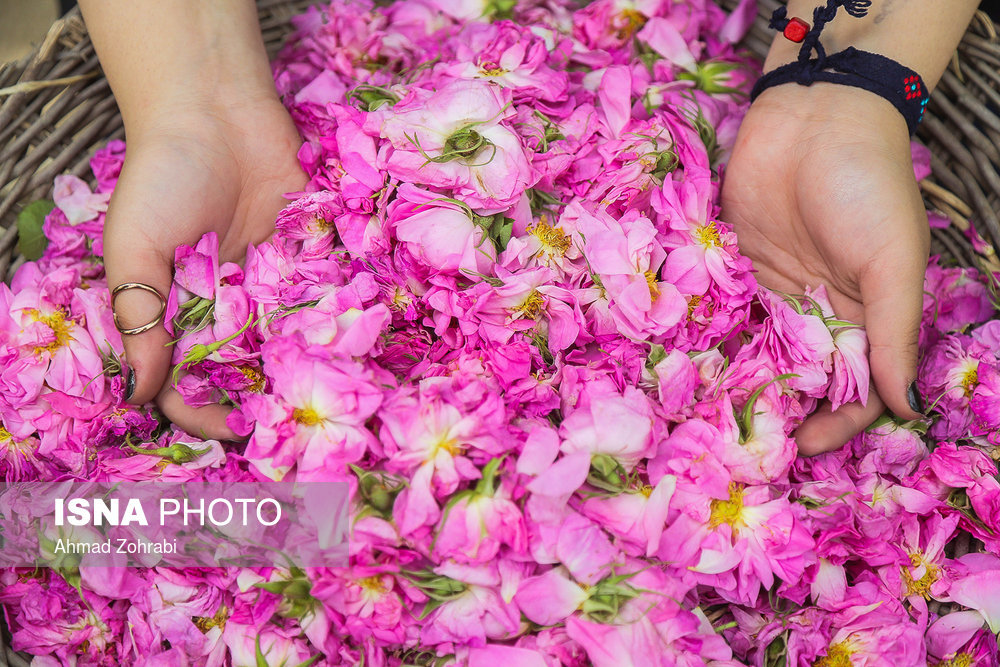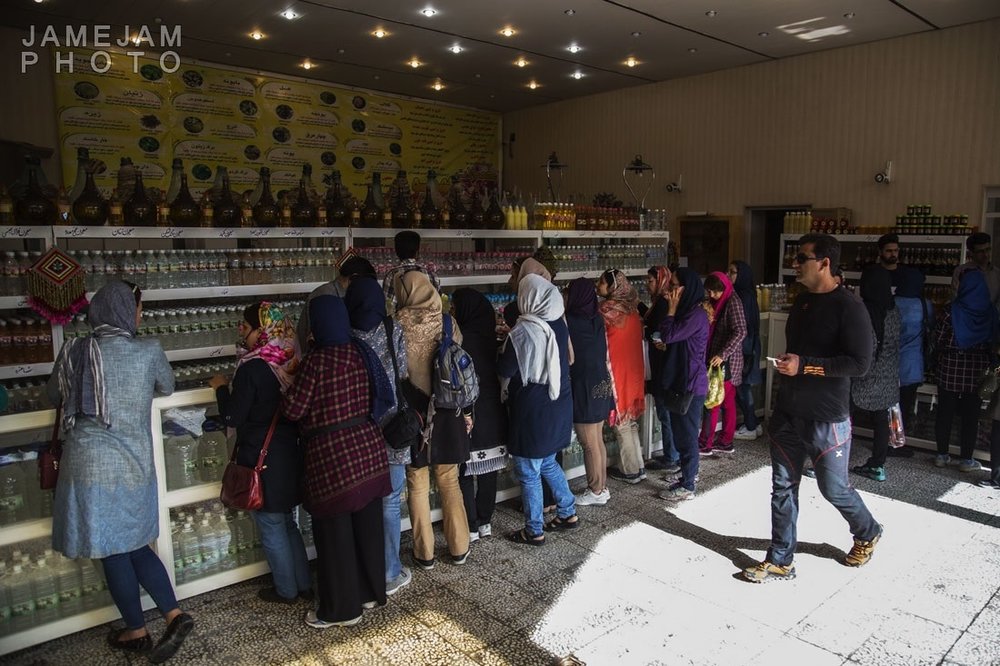People come to watch how rosewater is made indigenously from harvesting to steaming damask rose petals either at homes or gardens.

Harvested Mohammadi roses seen during the process of making rosewater in a small factory in Qamsar on May 3, 2017.
Qamsar, Niasar, and Barzak are amongst other destinations. Every corner of the towns are teemed with the dance of colors and delicate fragrance of roses.
Golab or rosewater is a fragrant distillate of the roses which is used nationwide in diverse traditional dishes to flavor them or consumed as a religious perfume as well.
Many believe traditionally distilled rosewater is of higher quality from that of produced in factories probably due to shorter time interval between the harvest and distillation practices.
Distillation of flowers and herbs has a deep history in the country.

In the early hours of morning men pick Mohammadi roses to be later processed for rosewater in Qamsar on May 3, 2017.
Harvesting and distillation
Rosewater is obtained from a very sweet smelling kind of the flowers, best known as Mohammadi roses in the country. Rosewater and rose oil are major products of the damask rose.
Harvesting damask rose flowers is somewhat an intensive work. It is mostly performed from dawn through morning.� Delay in harvesting or transport to distillery results in decreased essential oil quantity and quality.
To extract the rosewater people first amass their petals to put them into the massive copper pots. Then the pots are put on traditional ovens made from bricks, stones and mud.
Almost every 30 Kg of rose petals plus 80 liters of water are poured into each pot that is connected to metal pipes for the steam moving through to obtain the hydrosol. The waste of distillation is used for feeding livestock or composting.

Visitors buy rosewater and other herbal drinks displayed on the shelves of shop in Kashan on May 3, 2017.
Therapeutic effects
Narratives say that rose oil and rosewater have many therapeutic benefits. Rose oil soothes the mind and heals depression, grief, nervous stress and tension.� It� aids� in� problems� with� the� digestive� system,� healing� colds, and� skin� health.

Men contribute to the process of making rosewater in a small factory in Kashan on May 3, 2017.
Kashan rich in history, architecture
Kashan embraces abundant scenic landscape, historical sites and monuments and including Tabatabaei House, Boroujerdi House, Ameri House and Abbasi House, a traditional bazaar, the UNESCO registered Fin Garden with its Safavid and Qajar edifices, and Jame Mosque of Kashan, just to name a few.










